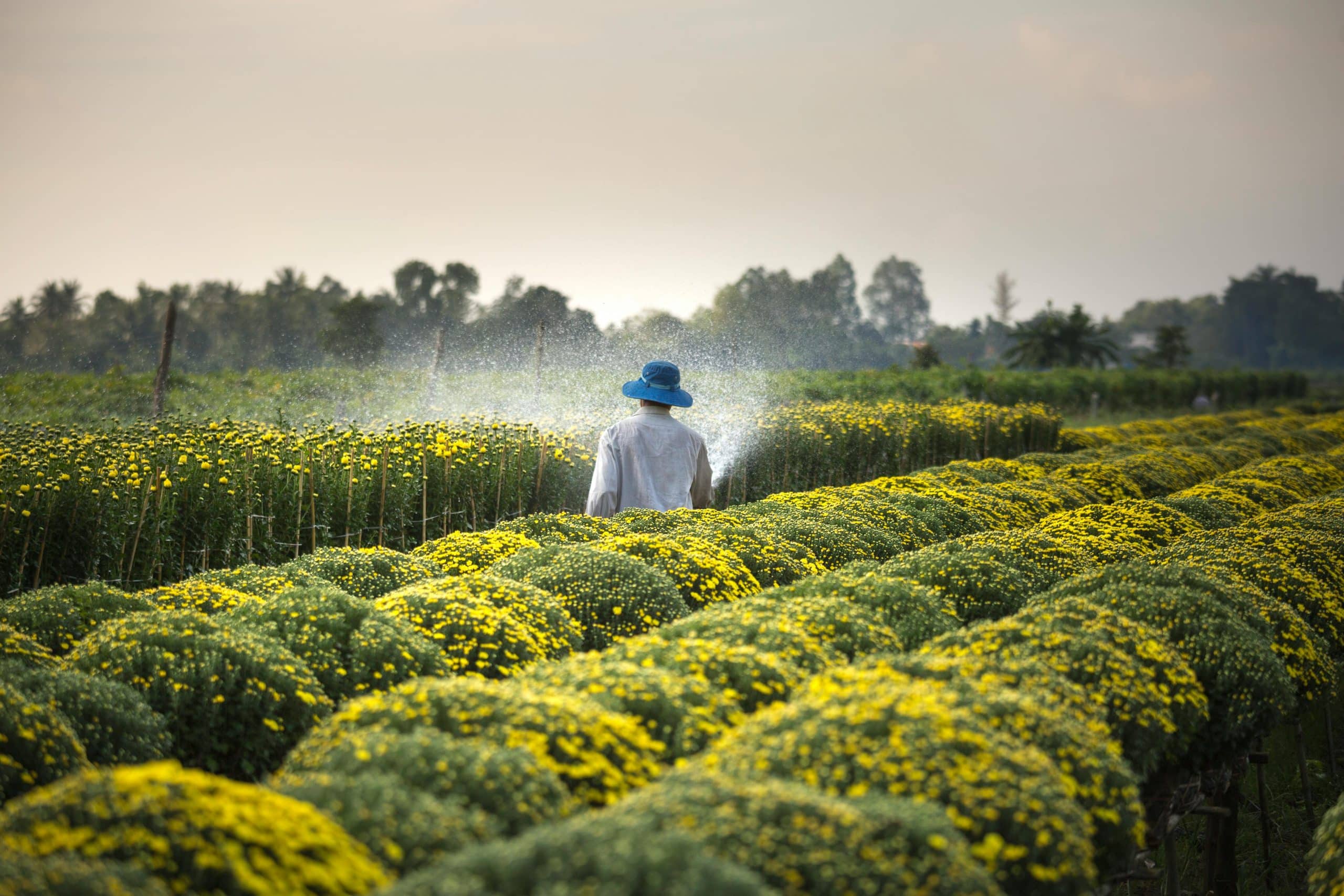What are the new limitations on water usage for UK agricultural activities in 2023?

In 2023, the United Kingdom introduced new limitations on water use in agricultural activities, creating a seismic shift in the management of this vital resource. Leveraging data and scientific insights, farmers, policymakers, and environmentalists alike are now compelled to rethink their relationship with water, shaping strategies that address scarcity and environmental concerns while ensuring the continuity of the food supply.
The Context: Water Scarcity and Environmental Concerns
The fresh, crystal-clear image of water is no longer a guarantee for the agricultural sector in the UK, as the country grapples with a growing problem of water scarcity. Changing weather patterns, population growth, and inefficient use of this resource have increasingly put pressure on available water resources. Climate change, in particular, has led to unpredictable rainfall patterns and frequent bouts of drought, exacerbating the problem.
Lire également : How to engage in the UK's public consultation on new public library services in 2023?
Farmers have borne the brunt of this crisis. Often, they have been caught between the imperatives of maintaining their livelihoods and complying with environmental regulations. The situation is precarious, given that agriculture consumes a significant portion of the country's water supply, and yet, it is also a critical part of the economy.
The Plan: Stringent Water Management Schemes
The new limitations on water usage, introduced by England's government in 2023, have sought to address this crisis. They have rolled out stringent water management schemes aimed at promoting efficient use of water resources, while also safeguarding the environment. In essence, they have recalibrated the balance between economic productivity and ecological conservation.
Dans le meme genre : How to apply for the 2023 UK local heritage preservation grant?
The plan is rigorous and demands a lot from farmers, but it is not unreasonable. It stipulates that they will have to monitor their water usage closely and adhere to specified limits. This requirement might pose a challenge initially, but in the long run, it will foster more sustainable agricultural practices and bolster resilience against future water shortages.
The Actions: Smart and Strategic Use of Water
Farmers will have to adopt smart and strategic actions to comply with these new limitations. They will need to evaluate their current irrigation systems and practices, identify areas of wastage, and implement technologies that promote water conservation. These actions might include drip irrigation, rainwater harvesting, and soil moisture sensors, among other measures.
The government has also provided a framework for these actions to be implemented effectively. Farmers are encouraged to undertake soil and water audits, which will provide valuable data on the specific needs of their land. This information will guide precision irrigation, ensuring that water is used sparingly and only where it is most needed.
The Impact: From Land to Plate
The impact of these limitations transcends the boundaries of the farm. They are not merely about preserving resources for farmers; they are also about securing the food supply for the entire nation. Indeed, water scarcity poses a threat to food security. As such, these limitations are a safeguard against a potential food crisis.
Moreover, the actions of farmers, under these limitations, will have a positive impact on the environment. By using water judiciously, they will lessen the burden on natural ecosystems, protecting them from excessive exploitation and degradation.
The Future: Co-Creating a Sustainable Agricultural Landscape
These limitations are not the end-all solution to the water scarcity problem in the UK. They are just the starting point. They represent a new way of thinking, a new approach to managing water resources that is centered around sustainability and environmental stewardship. It is a call to farmers, and all stakeholders in the agricultural sector, to co-create a sustainable landscape, where natural resources are not just exploited, but also protected and nurtured for the benefit of future generations.
In this future, water will not just be seen as a resource to be consumed, but a precious commodity to be conserved. And when this understanding is embraced, the agricultural sector will not just survive the challenges of water scarcity, but thrive in a world where sustainability is not just a buzzword, but a way of life.
In the grand scheme of things, the new limitations on water usage for UK agricultural activities in 2023 have marked a turning point, a significant moment when the country decided to take a firm stand on water management. The journey ahead might be challenging, but with strategic actions and a shared vision of a sustainable agricultural landscape, the prospects look promising.
The Guidelines: Ensuring Water Quality and Natural Capital
The guidelines launched in 2023 have been designed to ensure not only the efficient use of water but also the protection of water quality and natural capital in the long run. The regulations stipulate that land managers should prioritise sustainable water management to avoid water stress, especially in drought-prone areas.
Farmers are required to implement management plans that conserve water and protect the natural environment. The guidelines suggest replacing traditional irrigation methods with more efficient systems that reduce water usage, such as drip irrigation and using sensors to monitor soil moisture levels.
The government, through the Environment Agency, has also introduced higher tier payment rates for farmers who conform to these guidelines and demonstrate their commitment to preserving natural resources. Farmers are eligible to receive financial support if they implement practices that enhance water conservation, improve water quality, and promote nature recovery.
This new approach encourages farmers to view water as a vital component of their natural capital, rather than just another resource. It fosters the understanding that protecting water resources contributes to the overall productivity and sustainability of their land management practices.
Shaping the Future: Role of Water Companies and Climate Change Adaptation
The role of water companies in ensuring a sustainable water supply for agricultural activities cannot be overlooked. They are key stakeholders in achieving the goals set out by the 2023 limitations on water usage. The collaboration between farmers and water companies is crucial to manage water resources efficiently and meet the demands of food production.
Water companies are expected to support farmers by sharing data on water availability and helping develop strategies to cope with water shortages. These partnerships can lead to innovative solutions and technological advancements that make agriculture more resilient to water scarcity.
Further, the new regulations have encouraged farmers and water companies to develop strategies that address the challenges of climate change. As unpredictable weather patterns and frequent bouts of drought become more common, there is an urgent need for adaptive measures. These might include building resilience in crops, optimising irrigation systems, or adopting drought-resistant crop varieties.
Conclusion: Towards a Sustainable and Resilient Agricultural Landscape
The new limitations on water usage in the UK agricultural sector represent a significant shift towards a more sustainable and resilient agricultural landscape. They highlight the need for a balanced approach where economic productivity is aligned with ecological conservation.
The role of farmers, land managers, and water companies is pivotal in this transition. Their actions today will shape the future of agriculture in the UK – a future where water scarcity is managed effectively, and natural resources are conserved.
The journey to this sustainable future might be challenging, burdened with the uncertainties of climate change and growing demands for food production. However, with the right strategies in place and a shared vision of sustainable land management, the UK agricultural sector can thrive.
In the grand scheme of things, these new limitations serve as a reminder that water is more than a resource to be consumed. It is a precious commodity that needs to be conserved and nurtured for the benefit of future generations. The 2023 regulations have indeed marked a turning point, a moment when the UK decided to take a firm stand on water management, not merely for the present but also for the future.
In the end, it is about co-creating a sustainable agricultural landscape, where the continuity of the food supply is ensured, and the natural environment is protected and cherished.
